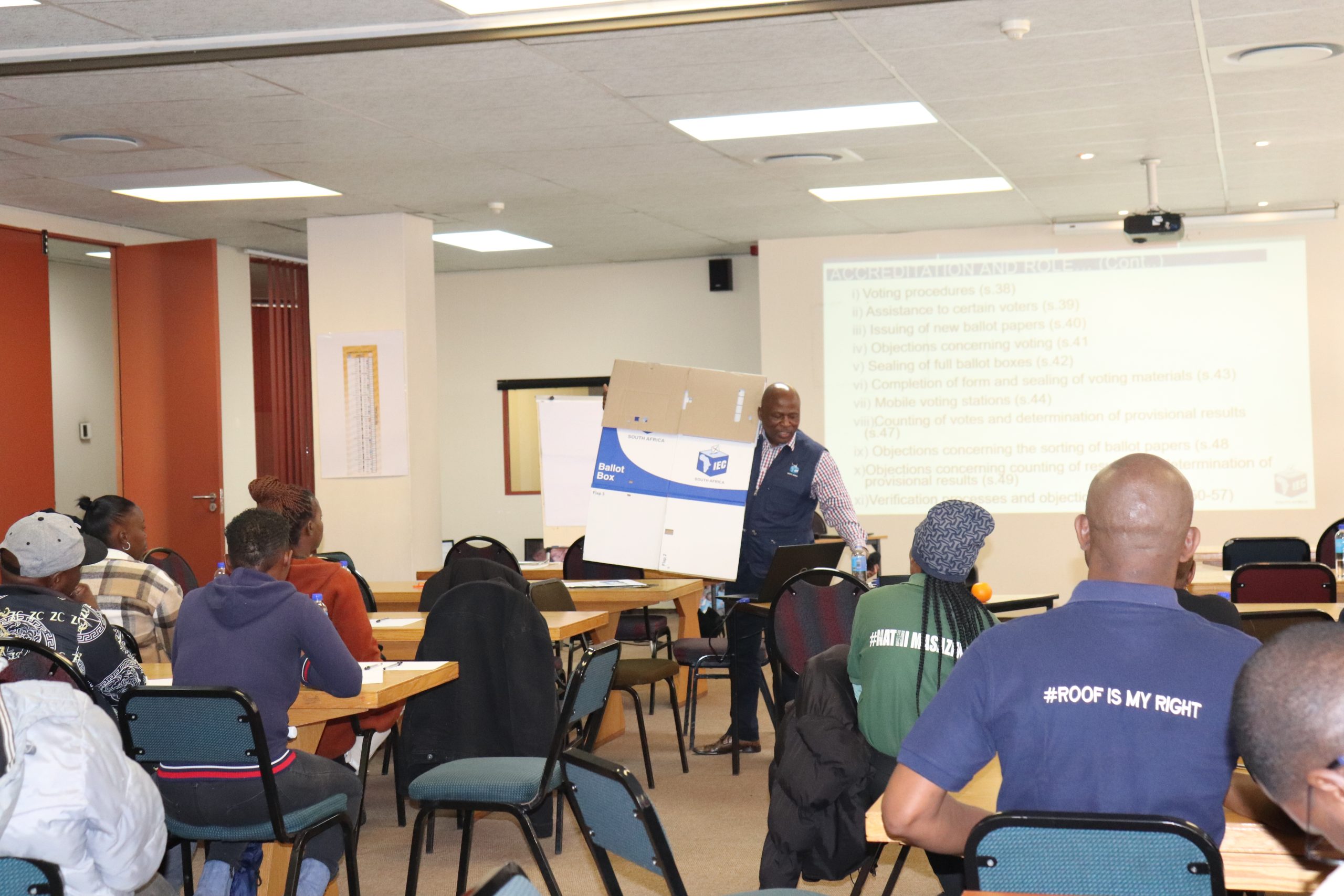Background
Planact has convened a series of workshops as part of its broader work on promoting civic education to ensure that citizens are equipped with important information on the upcoming May elections and related processes. The workshops were held in Gauteng, North West and Mpumalanga provinces. They were designed to provide information on the election process to promote meaningful participation to positively influence electoral processes and outcomes and the making of informed decisions so that the elections take on real meaning. The broader context of the elections is a focus as well as the threats surrounding the holding of free and fair elections.
Audience
Central to this initiative are Planact’s communities, including community facilitators and community clusters of agency members who will be an important audience. Equipped with information and the developments surrounding the elections and broader issues, they can share learnings and address questions on the upcoming elections in their respective communities. This thereby builds a more informed public and generates a level of interest to combat voter apathy and encourage higher levels of voter participation.
Planact seeks to engage a wide audience on the civic education topic. Workshops were held for the City of Johannesburg and City of Ekurhuleni community members, as well as in the City of Tshwane and Emalahleni Local Municipality.

Workshop Topics
The workshops explored several topics, including:
- The role of elections in building stronger democratic governance processes.
- Voting and voter rights.
- The ballot and how to navigate election day
- The political party system.
- Campaigning windows and the electoral laws governing this process.
- The role of disinformation and fake news in elections on social media and in an Artificial intelligence era. What role can and should the media play in the May elections?
- The responsibility of elected candidates/officials towards citizens after elections.
- Holding elected candidates/officials transparent and accountable in their decisions.
Stakeholder Engagement
Planact engaged several stakeholders in arranging the workshops. Good Governance Africa, with its expertise in governance and governance processes brought invaluable contextualization of elections and the electoral process with a broader framing.
The Independent Electoral Commission (IEC) addressed technical issues surrounding voting and an explanation of the ballot in May’s elections. The Commission continues to be central in addressing a host of other issues surrounding political party systems, the electoral system, and election observing.
Media Monitoring Africa is another key stakeholder with its focus on key threats that can hamper the holding of effective, free, and fair elections. These issues relate to the social media landscape where election information can convey false information and spread disinformation campaigns and fake news. These threaten the cultivation of media freedom and accountable media.
Civics Academy, a not-for-profit online education initiative in South Africa, initiated and run by the Hanns Seidel Foundation is a valuable partner in Planact’s work towards civic education. They brought in tools to empower Planact’s communities with greater awareness and the information and tools to identify issues of concern surrounding election news and information.
The workshops presented an opportunity for the donor community to participate and engage, particularly, those with a focus on civic education, democratic development and governance.
Elections are a part of building stronger democratic states, but democracies are strengthened by enduring and strong institutions, the separation of powers and capacitated states with strong fiscal arrangements, a commitment to their people and an interest in their development. Our communities are keenly aware of the failings of government and the need for transparent and accountable governmental processes and systems. What happens in the elections will be vital to their socio-economic development and well-being through improved service delivery and infrastructure.
Conclusion
The workshops were geared towards ensuring that electoral processes, rules, and regulations are publicised to a broad audience and that engagements are held with communities, the IEC, and other stakeholders to promote democratic and participatory electoral processes. We want to ensure that the participants can share vital election information about voting and the upcoming elections with a broader audience.

